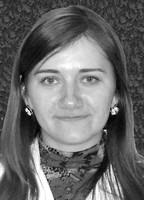Finswimmers' cardiovascular system adaptation specifics
Фотографии:
ˑ:
Teoriya i praktika fizicheskoy kultury №12 2016, pp. 82-84
UDC 796.01:612
Dr.Med. E.Y. D'yakova1
Postgraduate A.A. Mironov1
1National Research Tomsk State University, Tomsk
e-mail: adyakova@yandex.ru
The study was designed to explore the finswimmers’ cardiovascular system adaptation specifics versus that of classical swimmers. The study found the finswimmers’ heart rates at rest and after exercises being lower than that of the classical swimmers, with the blood pressure rates in both of the groups staying within the normal range. ECG decoding analysis showed insignificant changes in the P-peak amplitudes and forms for the classical swimmers. The QRS complex duration rates were dominated by 0.08 – 0.11 s; the QT interval rates in both groups were within the normal range; and no pathologic disorders were found in the athletes.
Keywords: adaptation, cardiovascular system, electrocardiography, finswimming, athletes.
References
- Vikulov A.D. Trenirovochny protsess i serdechny ritm (Еraining process and heart rate) / A.D. Vikulov, A.Y. Shevchenko // Meditsina i sport. – 2005. – № 8. – 32 p.
- Vildeboer P.E. Podgotovka Lotte Friis. Plavanie (Training of Lotte Friis. Swimming) / P.E. Vildeboer. 2011. – P. 57-61.
- Dembo A.G. Sportivnaya kardiologiya (Sports Cardiology) / A.G. Dembo, E.V. Zemtsovskiy. – Leningrad: Meditsina, 1989. – 495 p.
- Shumkov A. Azbuka plavaniya v lastakh. Ch. I (Finswimming ABC. Part I) / A. Shumkov, L. Shumkova. – Moscow: Azbuka 2000, 2009. – P. 6-9.
- DoXam, Aklas Hussein. Vliyanie vysokoy intensivnosti trenirovok na plovtsov v sorevnovaniyakh dlya igrokov na vysshem urovne (Effect of high-intensity training on swimmers' performance in top-level competitions) / Aklas Hussein DoXam // Pedagogicheskoe obrazovanie v Rossii. – 2013. – № 5. – P. 58-61.
Received 03.10.2016 г.




 Журнал "THEORY AND PRACTICE
Журнал "THEORY AND PRACTICE